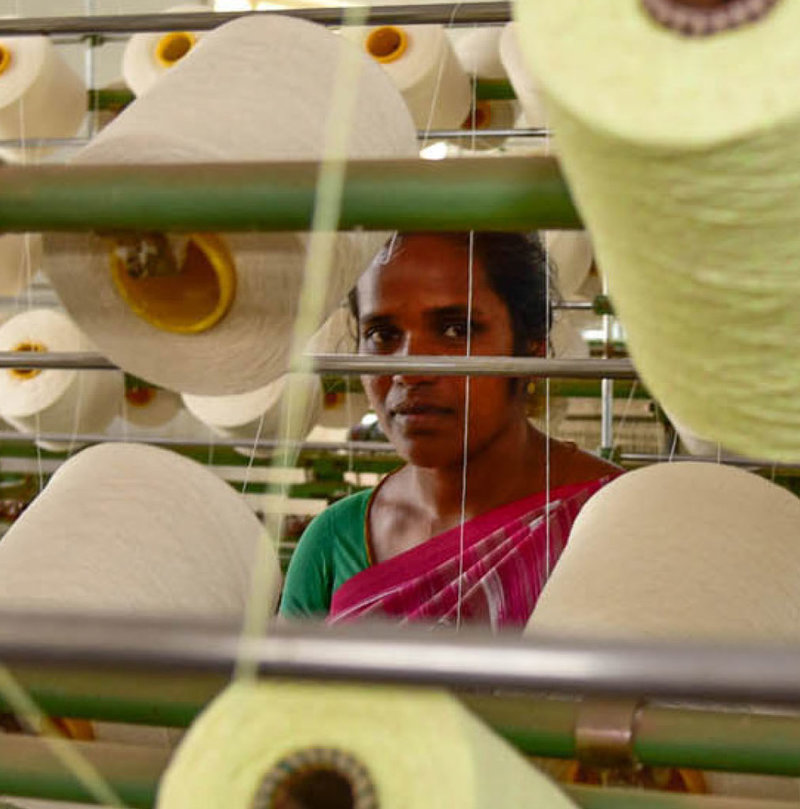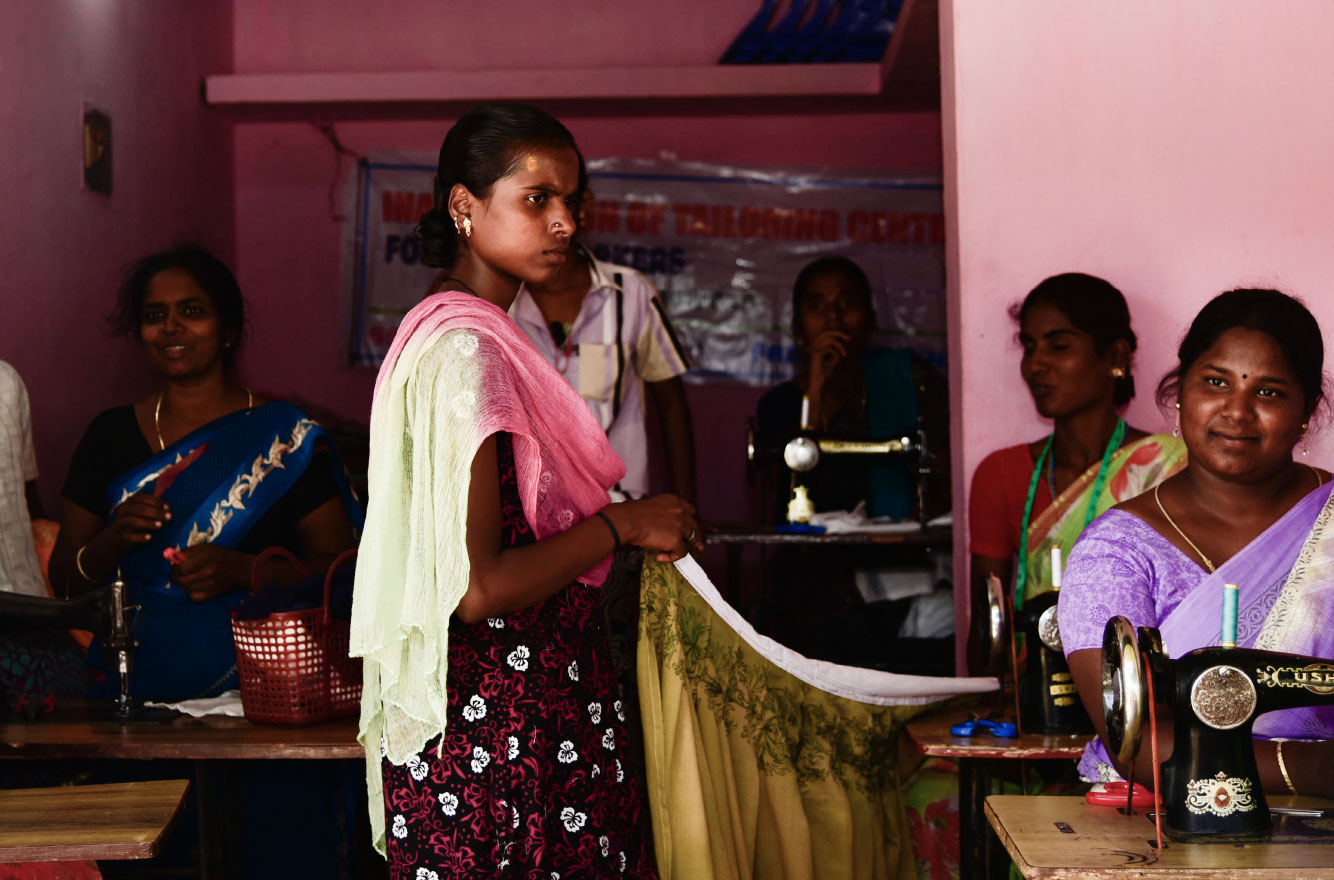How can we break down the entrenched barriers that keep people trapped in forced labour?
Our industry is dominated by complex supply chains. Multiple tiers of subcontractors and extensive use of home workers make visibility, traceability, and compliance difficult. This means that accountability for working conditions is poor and key actors like regulators, businesses, civil society and consumers don’t always have enough information to act.
Forced labour is a crime that’s prohibited by law. But these laws are often poorly enforced due to weak political will, corruption, insufficient resources, and low levels of capacity among those responsible for law enforcement. And where rigid social hierarchical structures exist, we find severe forms of discrimination based on gender, race, ethnicity, caste and migration status. These factors are among the fundamental drivers of modern slavery.


While gains have been made in combatting the drivers of slavery, the rollback of labour protection and anti-slavery policies and regulations in the countries where the foundation works means that we must accelerate our efforts in three key areas:
01.
Improve supply chain transparency for accountability
We need to increase investigative media coverage, and improve tools for data collection, channels to collect direct worker feedback, and mechanisms to improve supply chain mapping and traceability.
02.
Strengthen
the field
We need to develop tools and spaces for industry stakeholders to collaborate and learn together. This includes supporting research and collaborative platforms to explore, scale, and accelerate transformative approaches to reducing forced and child labour.
03.
Improve access
to justice
We need advocacy to inform public opinion, and to improve public policies and how they are enforced. Better advocacy is also critical for shifting harmful social and cultural norms and providing legal assistance for victims.
Success story
CAMI received Vogue’s EcoEra award
Our partner CAMI, a Non-Governmental Organisation in São Paulo, Brazil, supports migrant women working in apparel to fight against gender-based violence and slavery-like practices. CAMI’s innovative approach involves beneficiaries in the design, dissemination and execution of programmes – giving people an active role in the process. Through a one-to-one approach that develops leaders as multipliers of knowledge in the community, CAMI has been able to reach and engage more people.
CAMI was recognised for its work in 2017 when it received the EcoEra award, promoted by Vogue Brazil.
Since 2013, CAMI has:
18,000
Supported 18,000 immigrants to regularise their status
2,000
Provided courses for 2,000 immigrants
4,000
Provided legal or social assistance to 4,000 immigrants
700
Established support groups for 700 women